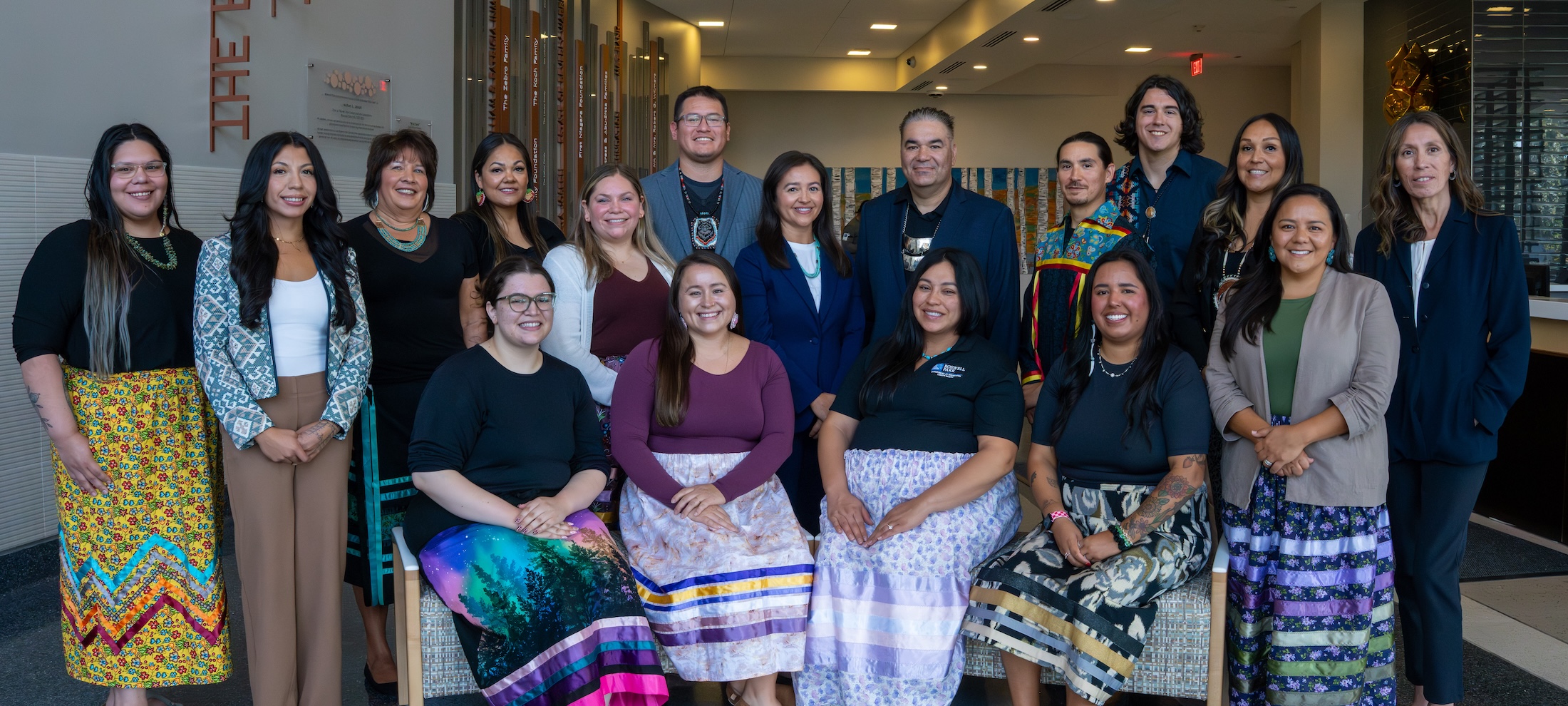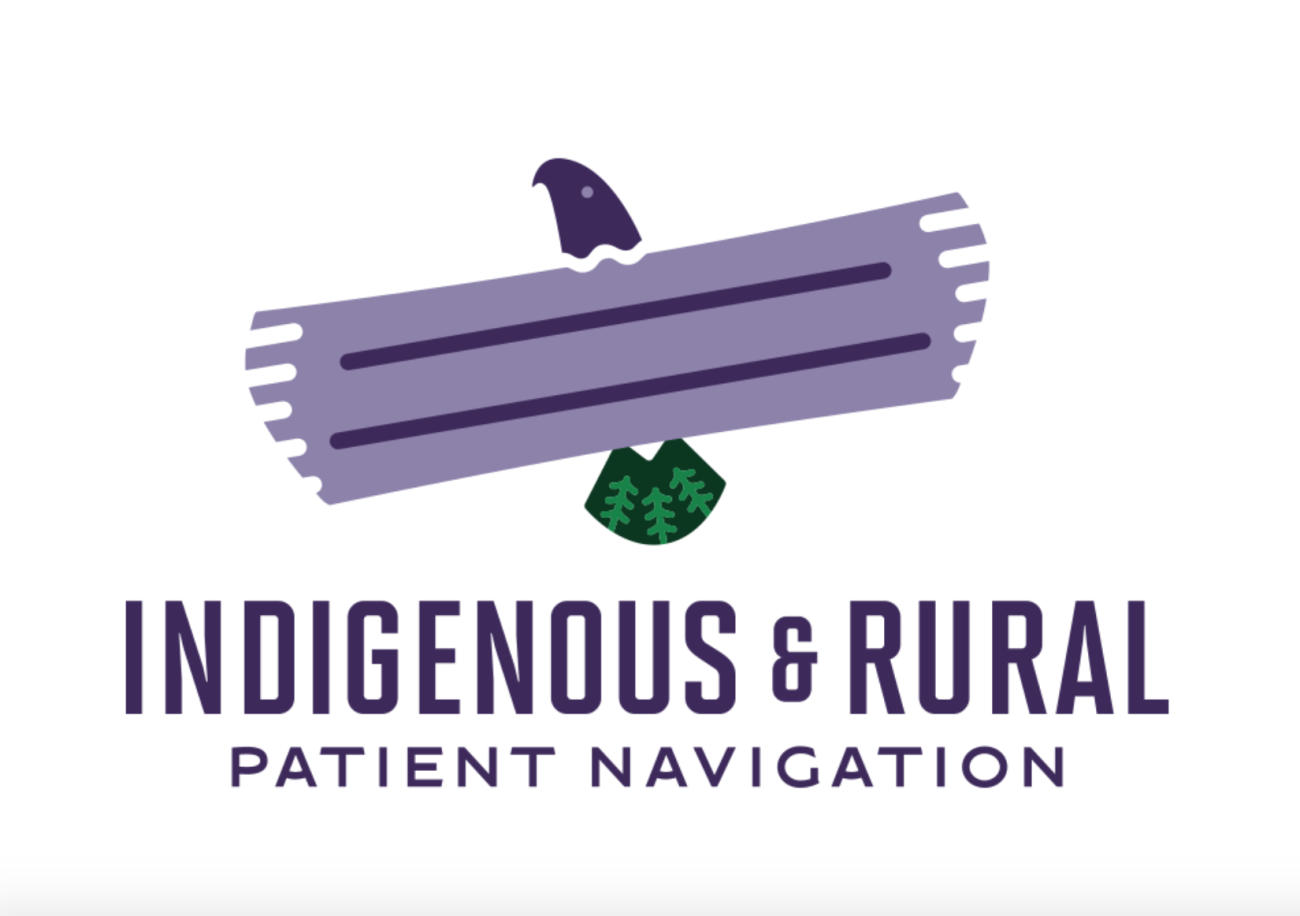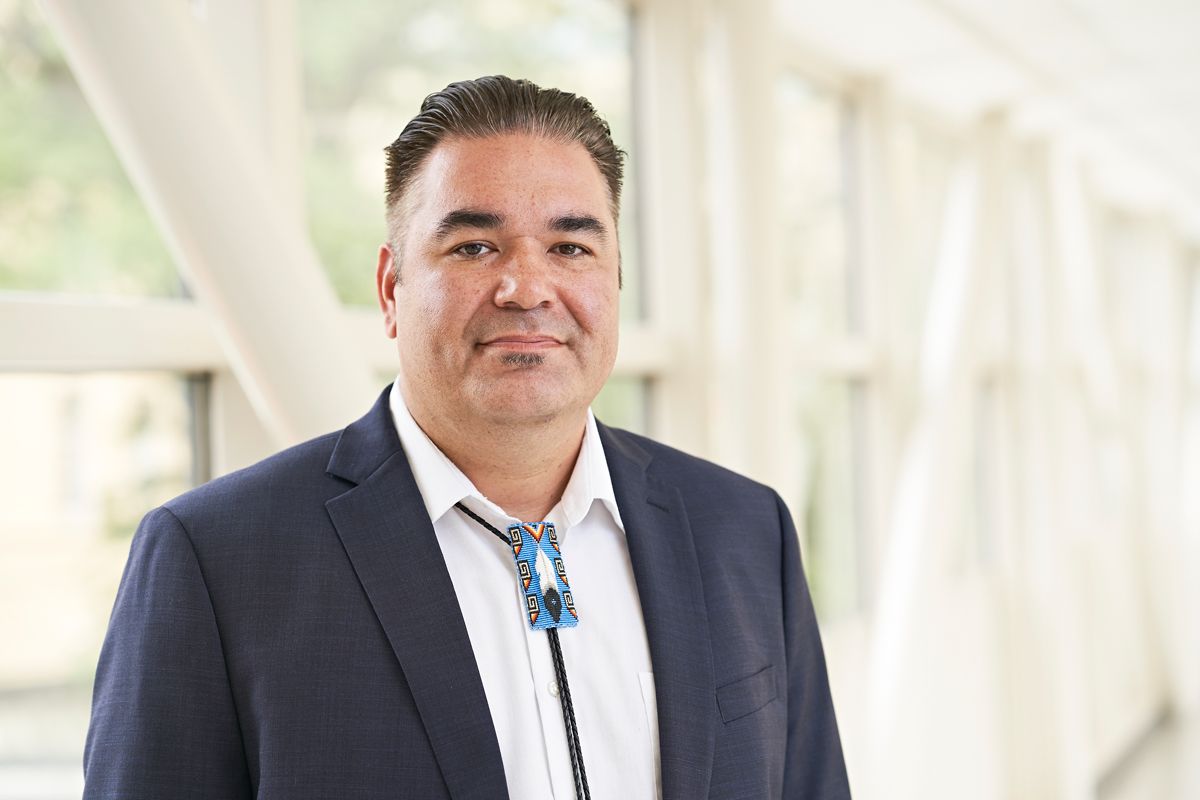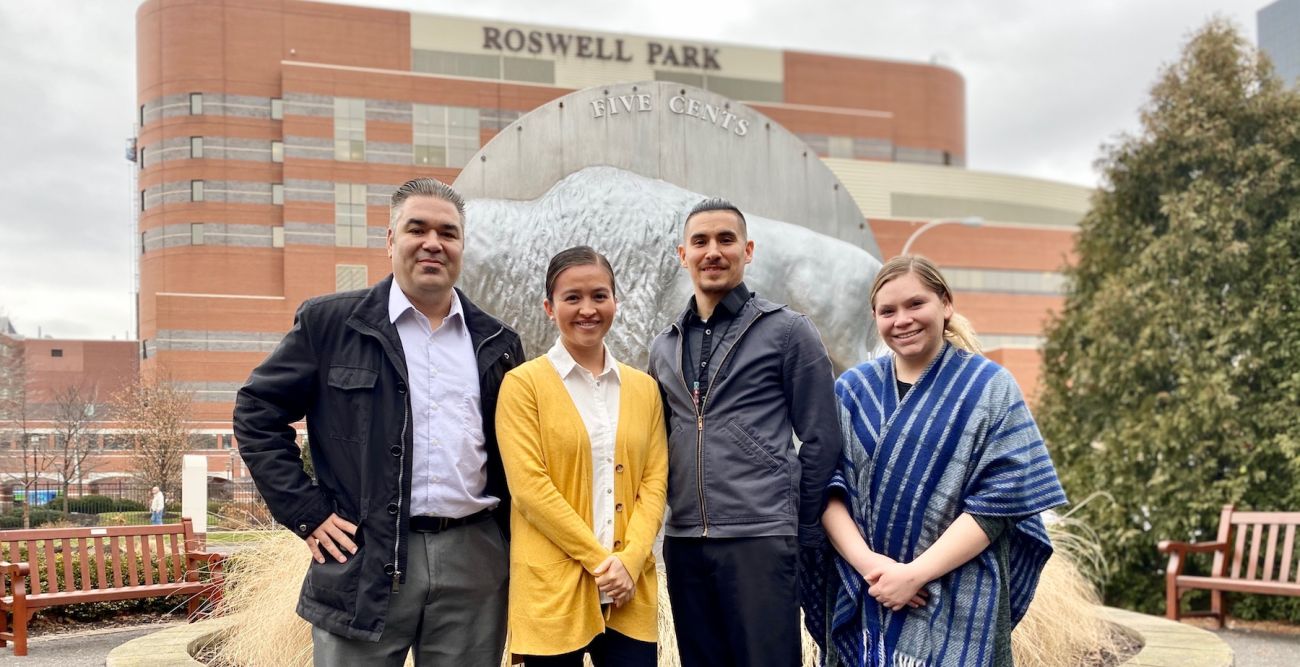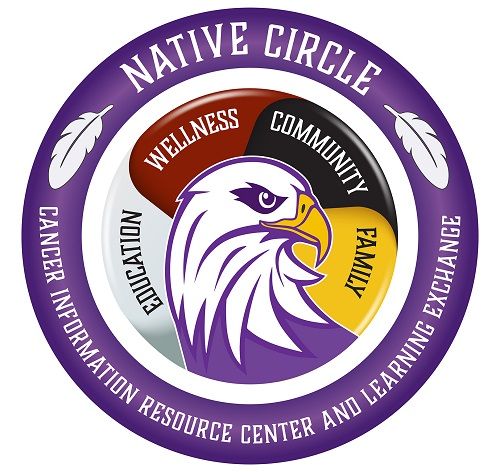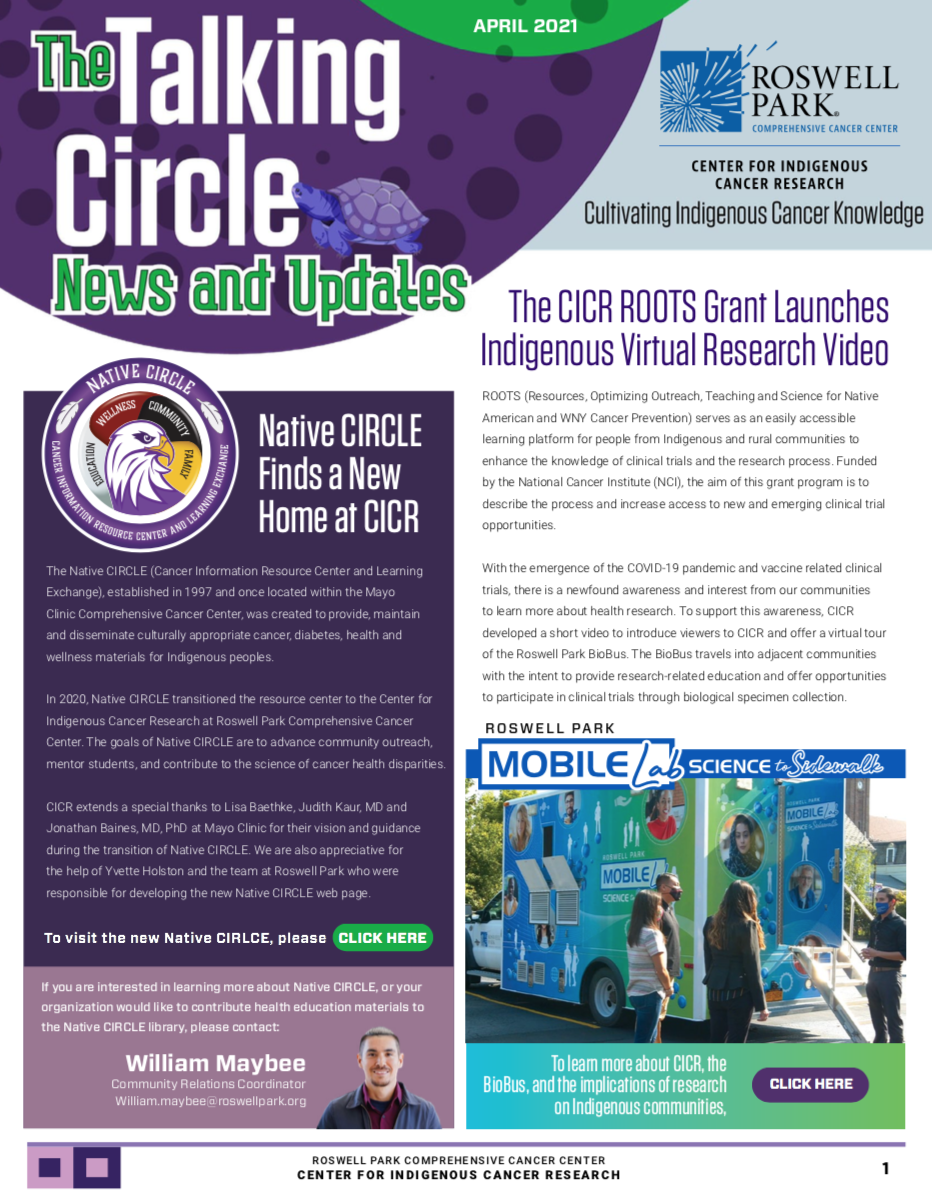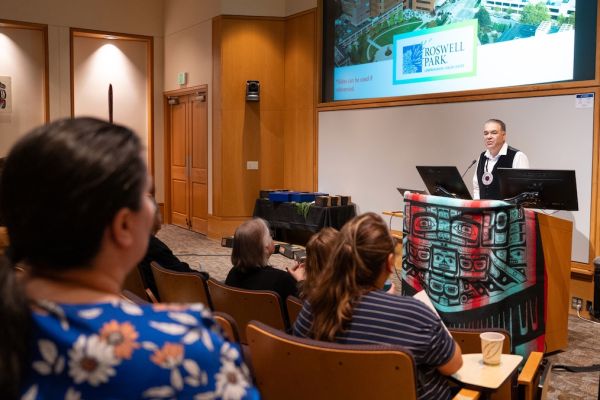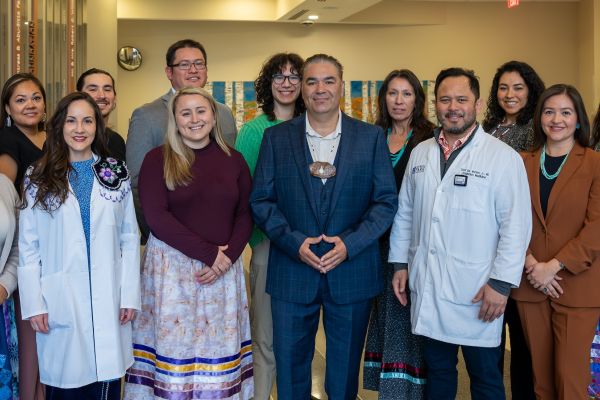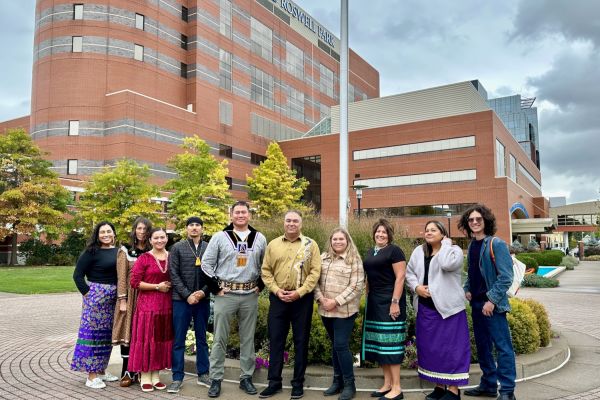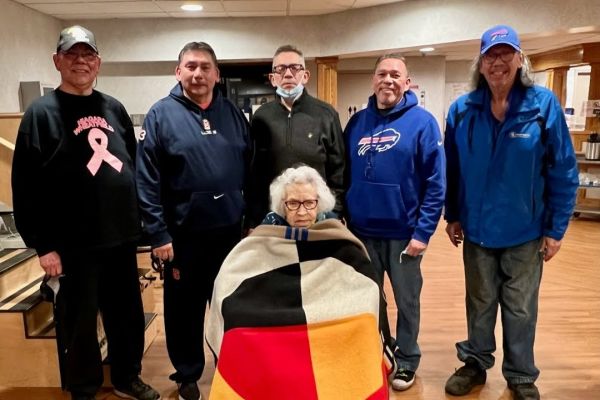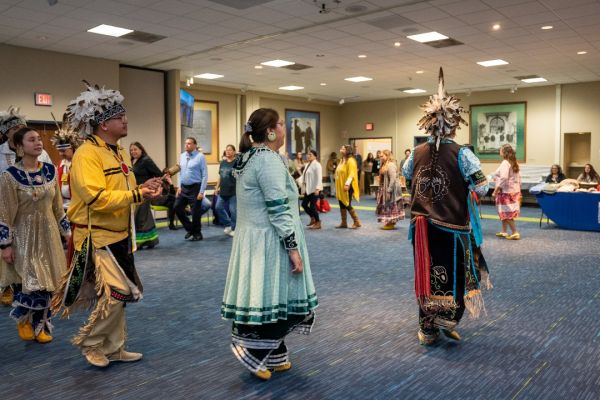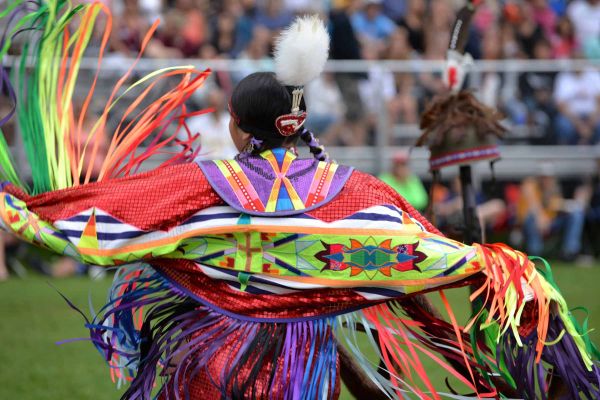Reducing the cancer burden on Indigenous peoples everywhere
Indigenous communities face some of the greatest cancer health disparities, higher mortality rates and persistent challenges in health equity.
To tackle these challenges, the Department of Indigenous Cancer Health at Roswell Park fuses multidisciplinary expertise and generational knowledge to create a culturally-attuned continuum of cancer care from prevention through survivorship.
Our goal is simple and ambitious: Reduce the impact of cancer on Indigenous communities regionally, nationally and internationally.
Indigenous & Rural Patient Navigation program
Cancer care is not an easy journey, but we can help clear the path and walk alongside you. Our Indigenous & Rural Patient Navigation Program is a free, non-clinical service to help you get the cancer care you need — from cancer screenings to survivorship services.
What we do
Roswell Park is situated in the homelands of the Haudenosaunee or Iroquois Confederacy — a league of Indigenous Nations who have the first treaties with the United States. Our work reflects Haudenosaunee principles of Strength, Peace and the “Good Mind.”
The Department of Indigenous Cancer Health aims to honor the values of Indigenous knowledge, sovereignty, and respect for the environment through community-driven partnerships, collaborative research and education to reduce the impact of cancer on Indigenous communities regionally, nationally and internationally.
Our efforts in both urban and rural settings focus on education and collaborative research:
- Cancer prevention and behavioral intervention
- Cancer screenings
- Clinical trials
- Summer research experience opportunities to engage students in indigenous cancer research
Working with our partners across borders and waters of North America, we coordinate educational events, host health screenings, conduct research and develop action plans to address not only cancer health disparities, but larger issues that impact wellness, such as human’s relationship with the environment.
“Inspired by Indigenous knowledge and ancestral wisdom, we advance cutting-edge cancer research that leads to translatable science, medicine and cancer care for Indigenous territories, Nations and populations world-wide.”
Rodney Haring, PhD, MSW
Seneca Nation/Beaver Clan
Our research
Some of our community-based participatory research topics include:
- Cancer care continuum
- Colorectal cancer screening
- Clinical trial education
- Obesity and co-occurring conditions
- Health policy
- Research ethics
- Workplace interventions
Maybee, W., et al. (2024). Indigenizing and Ruralizing NCI Screen to Save Program: Resources, Optimizing Outreach, Teaching, Science (ROOTS). Journal of cancer education: The official journal of the American Association for Cancer Education , 39 (1), 65–69.
Barrett NJ, Rodriguez EM, Iachan R, Hyslop T, Ingraham KL, Le GM, Martin K, Haring RC, Rivadeneira NA, Erwin DO, Fish LJ, Middleton D, Hiatt RA, Patierno SR, Sarkar U, Gage-Bouchard EA. Factors associated with biomedical research participation within community-based samples across 3 National Cancer Institute-designated cancer centers. Cancer. 2020 Mar 1;126(5):1077-1089. doi: 10.1002/cncr.32487. Epub 2020 Jan 7. PMID: 31909824; PMCID: PMC7021578.
Haring RC, Jim MA, Erwin D, Kaur J, Henry WAE, Haring ML, Seneca DS. Mortality disparities: A comparison with the Haudenosaunee in New York State. Cancer Health Disparities. 2018;2:10.9777/chd.2018.10009. doi: 10.9777/chd.2018.10009. Epub 2018 Jun 29. PMID: 31777774; PMCID: PMC6880943.
Haring RC, Henry WA, Hudson M, Rodriguez EM, Taualii M. Views on clinical trial recruitment, biospecimen collection, and cancer research: population science from landscapes of the Haudenosaunee (People of the Longhouse). J Cancer Educ. 2018 Feb;33(1):44-51. doi: 10.1007/s13187-016-1067-5. PMID: 27392418; PMCID: PMC5716929.
Resources
Native CIRCLE library
We curate this innovative platform for communities, students and healthcare professionals to exchange information.
In the news
Contact us
Email: IndigenousCancerHealth@RoswellPark.org
Media Inquiries: Lauren.Karns@RoswellPark.org
The Department of Indigenous Cancer Health is funded by Roswell Park along with NCI/NIH grants, donors, endowments and foundation support.
Roswell Park holds a cancer-focused Memorandum-of-Understanding with Indian Health Services.
